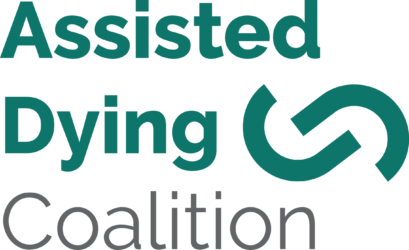On Sunday, BBC 2 aired the second installment of Louis Theroux’s new documentary series Altered States. “Choosing Death” followed the journeys of Gus, Lorri and Debra, as they grappled with a choice to end their lives.
Suffering from stage four pancreatic cancer, Gus was eligible to end his life under California’s 2016 End of Life Act. California’s law is modelled on the system and safeguards first established in Oregon in 1997. Anyone seeking an assisted death must be over the age of 18, be of sound mind, have gained the consent of two doctors, waited for a period of 15 days after an initial oral request to die and be expected to die within 6 months or less. This approach is being made available in an increasing number of US states and will become available in Hawaii in January 2019. The film showed the difficulties faced by those dying, and their families. Deciding the time of death is particularly difficult, balancing the wishes of the dying person to avoid unwanted suffering for themselves and their family on the one hand, and the family’s wish to put off the loss of the dying person for as long as possible on the other. This is always going to be a difficult decision but much rather this (preferably with more independent professional support than was shown in the film), than have to suffer the final stages without the ability to bring it to an end when desired.
At one point viewers watched Gus as he broke down, saying his decision was a “burden on [his] loved ones because they [didn’t] want [him] to go”. “I feel like I’m letting [them] down, when I decide to take that option.” Admitting if he was completely selfishly he would have ended his life many months earlier than he did.
Gus and his family did agree a time for him to die by swallowing the prescribed medication. He died peacefully with his family, however the death took over 7 hours. In contrast, Lifecircle, a Swiss organisation which provides medical assistance to die, uses an an intravenous (IV) method controlled by the patient.
Dr Erika Preisig, President of Lifecircle, told MDMD that the time taken by the Lifecircle method is “always the same, 30 seconds to fall asleep, and 4 minutes to die. No coughing, no vomiting, no pain at all.” Dr Preisig, has assisted 386 people to end their life using this method. It appears to have clear advantages compared to the US method, but still allows the patient to take the final action themself, something required by Swiss law.
Viewers also saw Debra, a 65 year old wheelchair-bound widow, ineligible under Oregon’s law for an assisted death. Debra also suffered from dementia like symptoms – something she knew would lead to an intolerable decline for her. Following the death of her husband she had no close relatives. She sought advice from a group called Final Exit Network, FEN. Their two “guides” were compassionate and offered only advice (they did not provide equipment or physically help with Deborah’s death). With their guidance, Deborah chose to end her life.
Following its broadcast the BBC 2 documentary sparked an online debate as to whether the UK should change its law. In 2015 Rob Marris MP, had introduced an Oregon style assisted dying bill into Parliament, but had failed to pass it during its first reading, losing 118-330 against.
BBC 2 @louistheroux documentary #ChoosingDeath highlighted precisely why MDMD is campaigning for a more inclusive change in the law. Few won’t have sympathised with Debra’s story. Sadly, the law denied her the help and support necessary, to safely end her suffering. pic.twitter.com/rqD7R7TrU2
— MyDeath, MyDecision (@MDMDmydecision) November 20, 2018
Phil Cheatle, Coordinator of My Death, My Decision, a UK organisation which campaigns for a change in the law has said:
“Yesterday’s documentary highlighted precisely why My Death, My Decision is campaigning for a more inclusive change in the law. Few won’t have sympathised with Debra’s story. Despite possessing a clear and settled wish to end her life and the capacity to make such a choice, the law did not allow her the help and support she needed to end her suffering. To respect someone’s dignity, to uphold their autonomy and to act compassionately, the law must allow assistance for those whose medical conditions give intolerable and incurable suffering regardless of their life-expectancy.”
“It is up to society to provide as much help as possible, but up to the person themselves to form their own view of whether this is sufficient. With the right support some can and do live fulfilling lives, despite the very difficult medical situations they endure. However this is not always possible. For those who, after careful and informed consideration, decide that their quality of life is permanently below the level they can accept, the law needs to change.”
“The film raises questions about unregulated well-meaning amateur groups like Final Exit Network. MDMD believes that a legal, regulated, professional assessment and support process would be a much safer way to ensure that people like Debra were making the right choice for themselves, having carefully considered all the options, before having a medically assisted death if that is their well-considered and persistent wish.”
“Louis Theroux’s documentary highlighted the empowering choice those who are within six months of dying possess in California. For those who are of sound mind and either terminally ill or incurably suffering, it is time for the UK to offer that choice as well.”
The final episode in Louis Theroux’s series “Take my Baby” will air on Sunday 25th November at 9pm.
The post PRESS RELEASE: A New Documentary Has Explored the Realities of Oregon’s Assisted Dying Model appeared first on My Death, My Decision.
